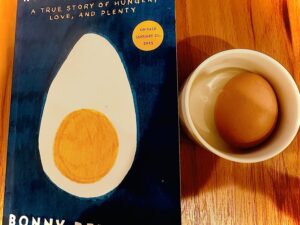About the Book
It’s 1924 in Branchville, South Carolina and three women have come to a crossroads. Gertrude, a mother of four, must make an unconscionable decision to save her daughters. Retta, a first-generation freed slave, comes to Gertrude’s aid by watching her children, despite the gossip it causes in her community. Annie, the matriarch of the influential Coles family, offers Gertrude employment at her sewing circle, while facing problems of her own at home.
These three women seemingly have nothing in common, yet as they unite to stand up to injustices that have long plagued the small town, they find strength in the bond that ties women together. Told in the pitch-perfect voices of Gertrude, Retta, and Annie, Call Your Daughter Home is an emotional, timeless story about the power of family, community, and ferocity of motherhood.
The Review
Deb Sprea has been the executive producer of shows including “Criminal Minds” and “Army Wives”. This visual sensibility is translated through the pages of her debut novel, “Call Your Daughter Home”. Her writing is so descriptive, that you can feel the humidity coming off of the swamps in South Carolina. You will swear that you are caught up in a hurricane. Every word conjures up an image. Each character serves a purpose in driving the story forward. It brings a human side to a story that could have easily descended into traditional Southern Gothic.
Branchville is a real place that Sprea visited as a youth – don’t skip the background at the end of the book. It will give you a deeper understanding of the story development. The book is based on fact – there was a boll weevil invasion that killed the cotton industry in the South. It threw the region into a depression prior to the Great Depression and sets the stage for the action in the novel.
The three main characters are separated by class, but united by strength, and in the end a greater purpose. They rely on each other in ways that will surprise the reader by the end of the story.
Gertrude is a battered wife living in poverty who has to take drastic action to save herself and her children. Annie owns “The Sewing Circle” – a business woman in a time when women were just gaining the right to vote. She lives on a plantation with her husband, Edwin, maintaining the pretenses of a privileged life without the finances to back it up. Retta, the daughter of slaves, works for Annie and Edwin, the very family who once “owned” her parents. She is the only one of the three women who enjoys a great love story. Her life isn’t perfect, however, she is still haunted by the tragic death of her daughter. Her relationship with her husband Odell, is a beacon of light in a dark novel. Her fear of losing him drives everything that she does.
The tragedy and trauma in this book come across as vividly real. The strength that each woman finds both within herself and because of the relationship with each other is inspiring. Retta becomes the conduit to redemption in a surprising way, and is the heart of the book. Gertrude and Annie are not to be ignored either. Each woman gets her due in the end. As sad as this book was, it was a story that I wished would never end. It was that good. Pick up this book if you are looking for a story to get lost in.
Favourite Line From the Book
This perfectly described the relationship that formed between Annie and Gertrude.
“I don’t talk much, but the Missus don’t mind. I feel like we’ve had whole conversations. We just don’t use words.”








